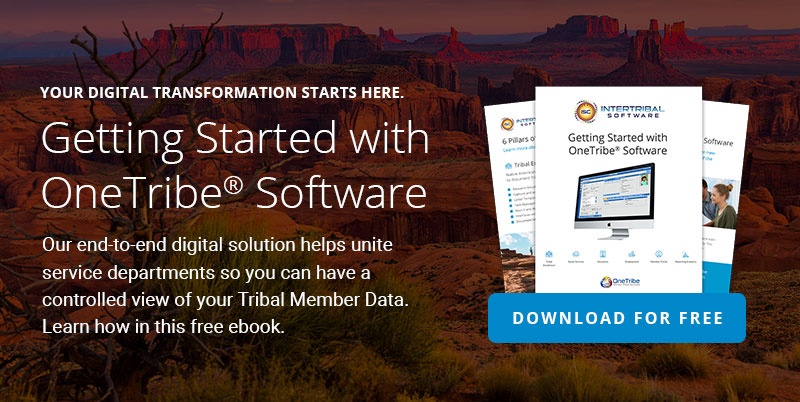
Sovereignty is an important concept for any tribal government. Sovereignty gives a nation the right to control and protect its people and all that they create. This includes data. Data sovereignty represents an important balance between access to digital services and the ability to protect the data of your tribal population.
Right now, companies must walk the line between where data originates and where it is processed. They are obligated to comply with all laws regarding data security and individual control over personal data where data originates. However, to exercise this control, you must first have laws and or policies in place to protect your tribal data.
Data sovereignty is an important matter for tribal governments. Here is what you need to know.
What is Data Sovereignty?
Data Sovereignty means that countries can make laws regarding how data is collected and handled. Data collected from one country must be handled according to its laws. This means data collected from your tribe members and within your tribal nation must be handled according to your laws.
Data Sovereignty also requires companies to handle data according to the laws where the data is processed. This means that if you allow servers and tech companies to process data within your nation's borders, they must adhere to your data handling laws.
The GDPR Example from the EU
A good example of this is the global adherence to GDPR (General Data Protection Regulation) wherein any data collected from an EU citizen must be accessible and controllable — with the ability to request revisions or deletion — by the data's owner. Tribal governments can exercise similar control to protect the data of their residents and members.
Why is Data Sovereignty Important for Tribal Governments?
Data sovereignty gives tribal governments the opportunity to protect the data of their tribal population. Without these protections, it is possible to take data from tribal residents and process it for commercial reasons without regulation or control. As a result, your population may not have the right to request revisions, request that their data be deleted, or receive notification of how their personal data is being used.
This is a situation that is all too familiar for most Native American tribes who have been marginalized due to a lack of recognition as separate legal entities. However, as data sovereignty becomes a global concern for companies, tribal governments have an opportunity to enact greater protections and provide levers of control for tribe members to control access to and use of their personal data.
How to Exercise Data Sovereignty to Benefit Your Tribal Government
The best way to make use of data sovereignty is to enact laws protecting the data of your Tribal Government and its constituents. Research how other countries and individual states have built their data protection laws. The EU and California are both good examples of a strict and protective data protection structure.
By enacting these laws, companies will be required to comply with the protections you put in place, which may require your Tribal Government to be informed of what data has been collected, how it is being used, and be given options to modify or remove data they don't want to be processed.
Maximize Data Privacy with OneTribe Cloud-Based Software
If you are looking for more ways to protect the data of your tribe and tribal government, investigate highly secure cloud-based software that is built with Tribal Governments in mind. OneTribe is an advanced cloud-based member services platform built specifically for Tribal Governments. With it, you can access all the tools you need to boost your tribal government's efficiency and organizational capabilities while protecting your data.
To learn more, download our free guide Getting Started with OneTribe, or request a demo of the platform today.
Sign Up For Our Newsletter
Recent Posts
- Innovations in Housing: Revolutionizing Tribal Housing with Digital Tools for Management
- Empowering Tribal ICW Departments: Achieve ICWA Compliance and Certification Success with OneTribe® Software
- OneTribe CCA - Your Child Care Data Tracker Replacement Solution
- Transform Your Tribal Member Services With Integrated Software Solutions
- Intertribal Software Raises Strategic Investment
Categories
- OneTribe Software
- digital transformation
- tribal government software
- Laserfiche ECM
- Intertribal Software Consultants
- Childcare Assistance
- Housing Management
- Intertribal Software
- tribal member management
- AFCARS Data Collection
- Child Care Data Tracker
- Child Welfare
- Housing
- ICWA
- ICWA Compliance
- Indian Child Welfare Act
- OneTribe Platform
- Title IV-E Certification
- Tribal Data Tracker
- Tribal Family Services
- Tribal Housing
- Tribal ICWA Software
















